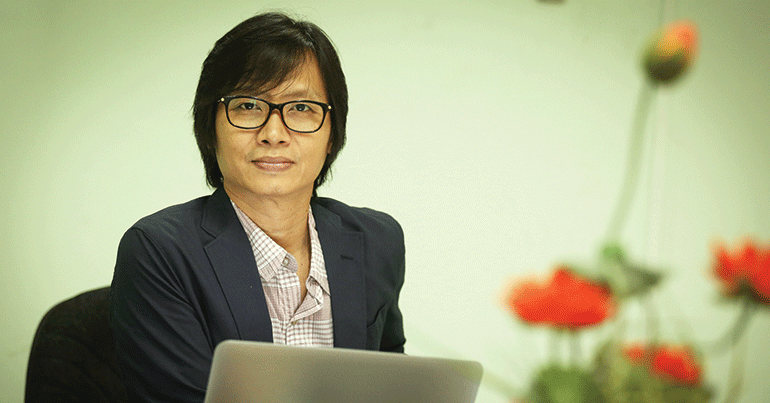Kyaw Zwa Moe, editor of the Irrawaddy magazine discusses the ‘invisible line’ that still exists for journalists in the country

The continued detention of three reporters who were arrested while covering an event in June hosted by an armed ethnic group has sent a clear message that press freedom remains tenuous in Myanmar. Kyaw Zwa Moe, editor of the Irrawaddy magazine, whose reporter Lawi Weng is among the jailed trio, discusses the ‘invisible line’ that still exists for journalists in the country.
What do you believe motivated these arrests?
The military doesn’t like our critical reporting, not only on the ethnic areas but reporting on the military and other institutions and powerful people. So our reporter and two reporters from DVB [Democratic Voice of Burma] went to northern Burma to cover issues over there because of the war, and they were arrested. My take on the arrests is they just wanted to send a message to all of the reporters saying that “You guys should be careful when you report about us”. The message is you have to impose self-censorship.
Do you think it will be effective?
We never do that, but we have to be very careful because there are still oppressive laws – outdated laws from the British era in our country, like the Unlawful Associations Act with which the military charged our reporters. The military or anyone can turn to these laws if they really want to arrest a journalist. I think there is an invisible line in front of us – we cannot cross the line, but we cannot see it either.
Is Aung San Suu Kyi, the country’s de facto leader, trying to improve the situation?
To be honest, I don’t know what she was doing, [or] whether she can help in terms of the arrest of our reporters. But what she said to the media right after the arrests is that the case is between the military and the reporters, and she suggested we look at the entire situation, which means there are oppressive laws that are supposed to be amended and repealed in the near future. But what I understand is she cannot tell the military to release the reporters right away; she cannot tell the military not to arrest reporters in the future.
Overall, would you say the situation for journalists is getting better?
Compared to the previous government, high-ranking officials are more willing to talk to media, but they don’t have enough information to provide us – sometimes they have no idea. Compared to the past, it is getting better, but I wouldn’t say I’m very satisfied with the situation.

